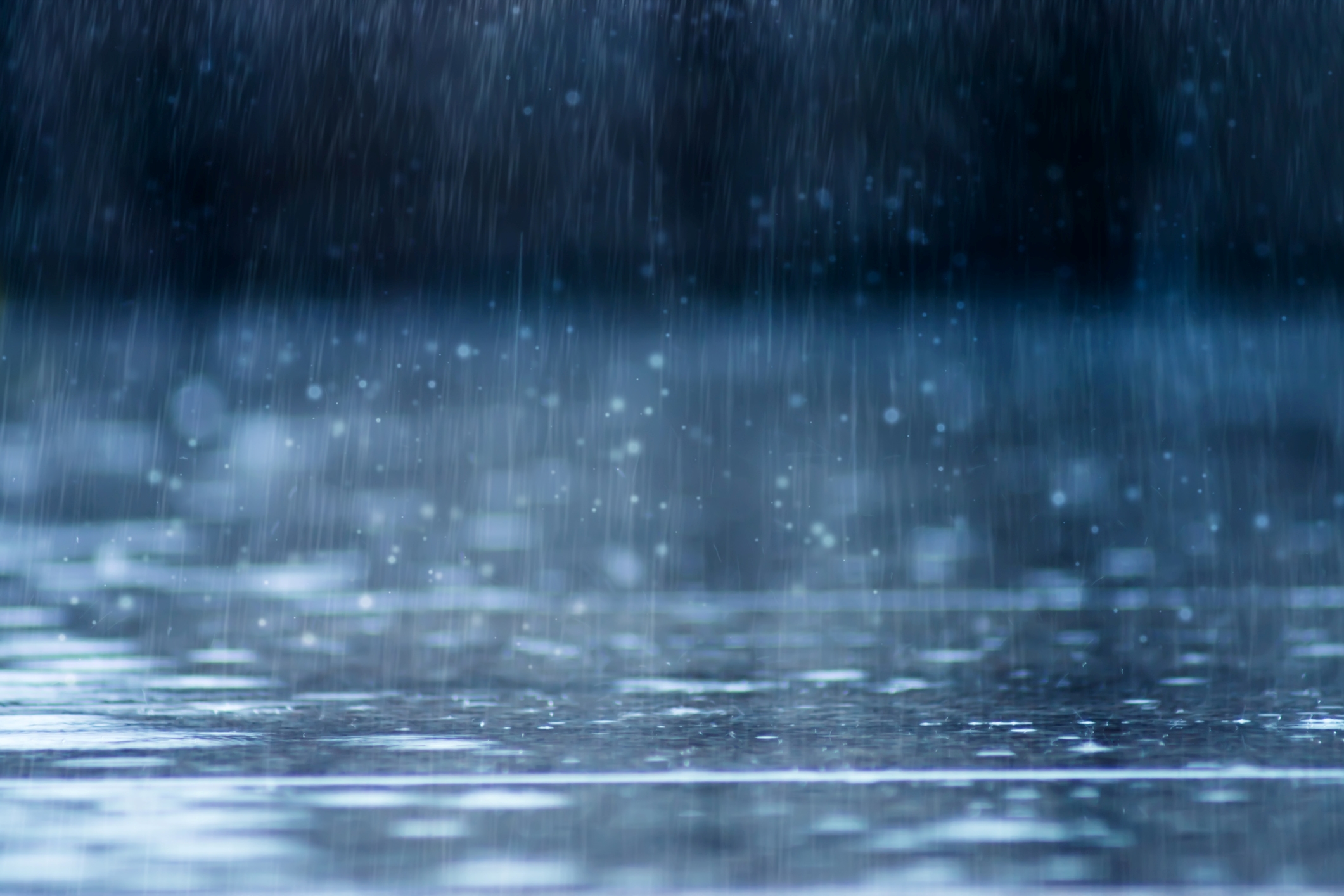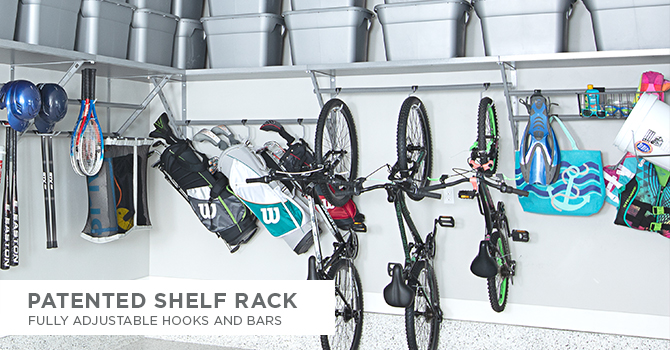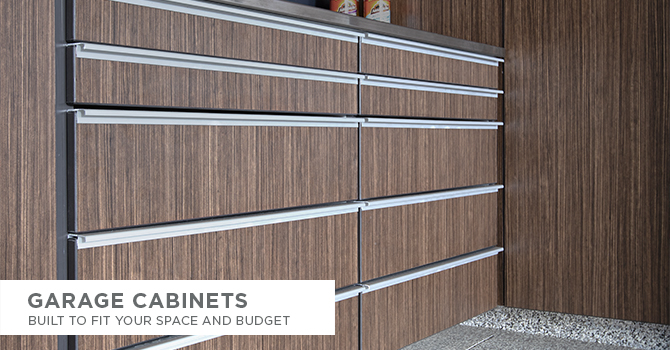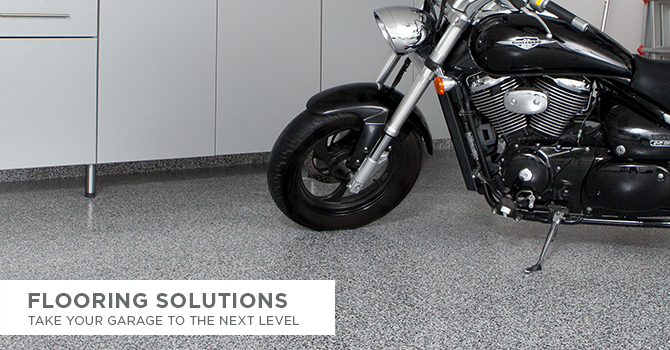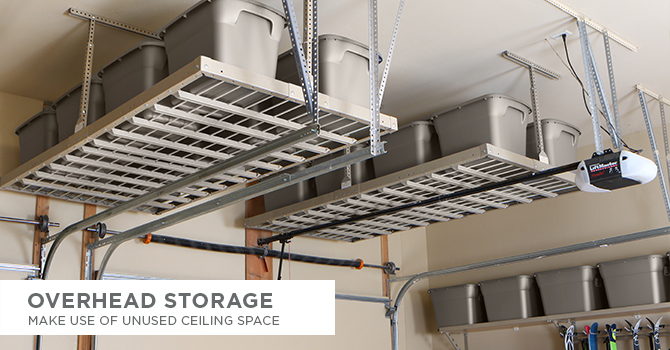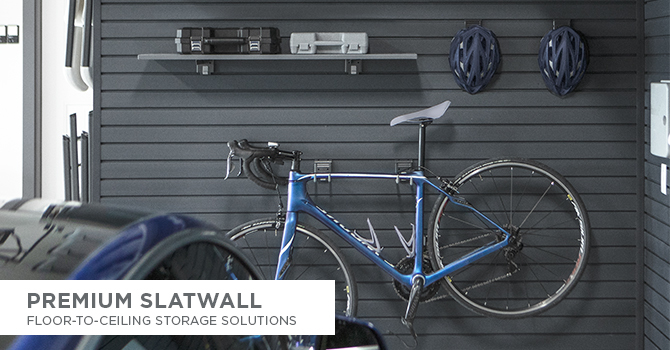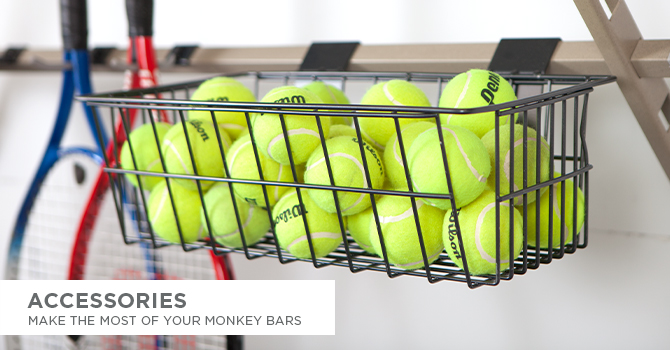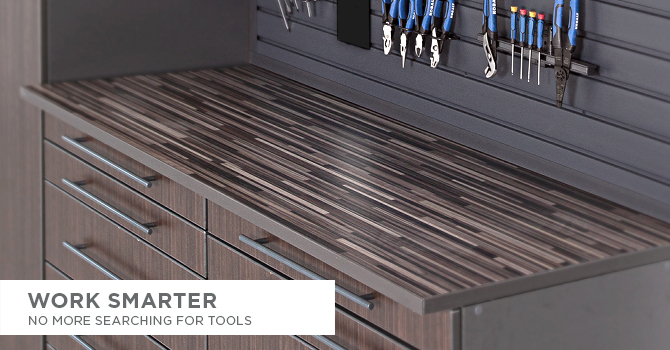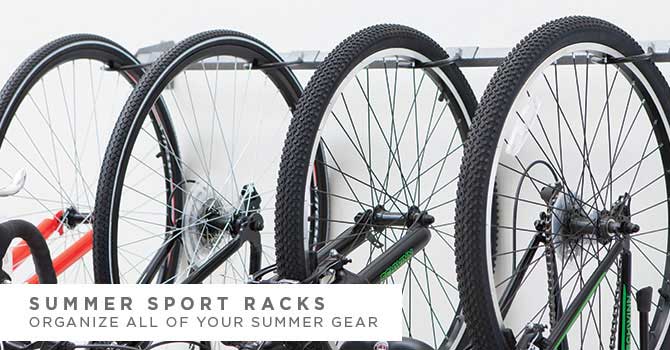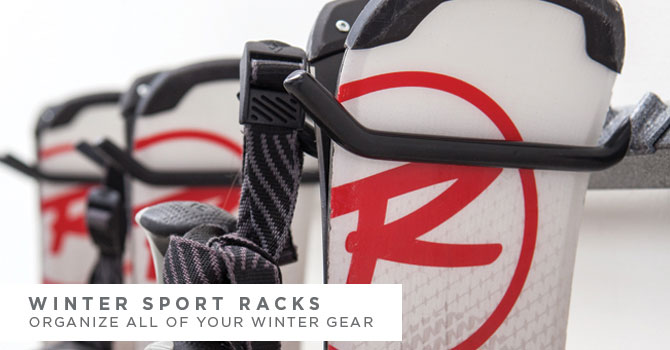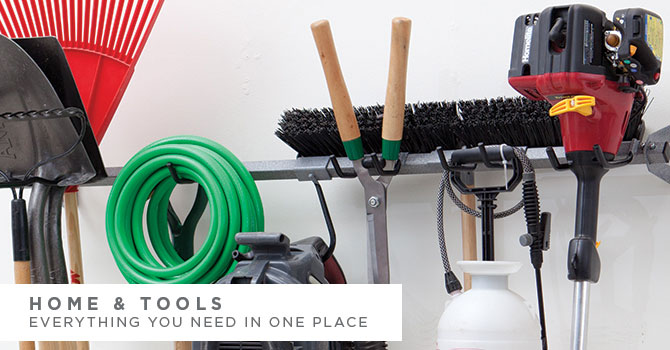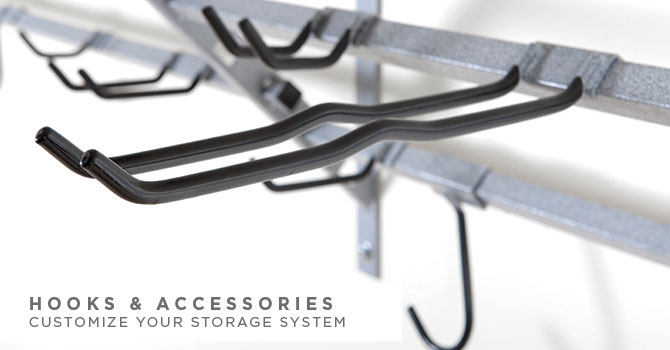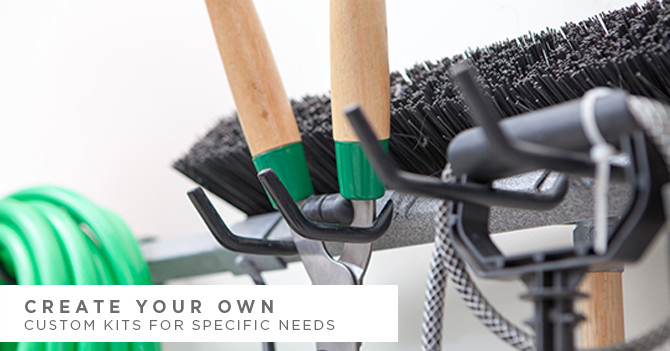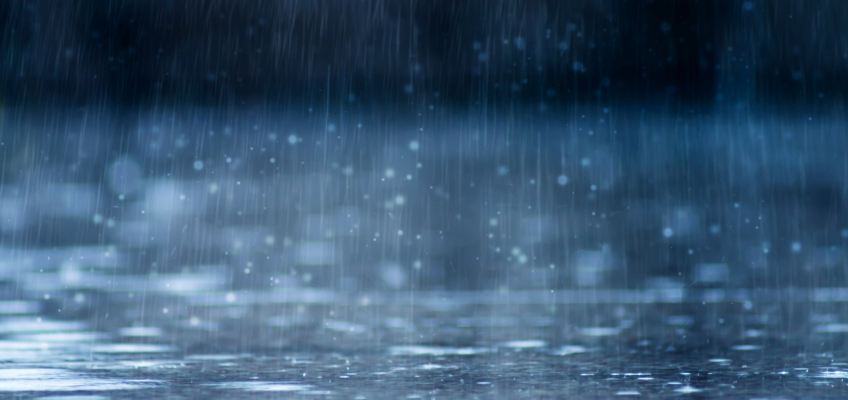
How Your Climate Can Affect Your Garage and What You Can Do About It
09/11/2019
One of the most common questions we hear when preparing our customers for a new garage concerns how our products and solutions will withstand the test of time.
Depending on where you live, a variety of variables can affect your garage. Nearly every family has unique challenges based on geography, design and the age of the home. That being said, there are a few general tips and tricks that can help you maintain your garage’s integrity over time. Here are five environmental factors that could be affecting the life of your garage and how you can deal with them.
Heat/Sunlight
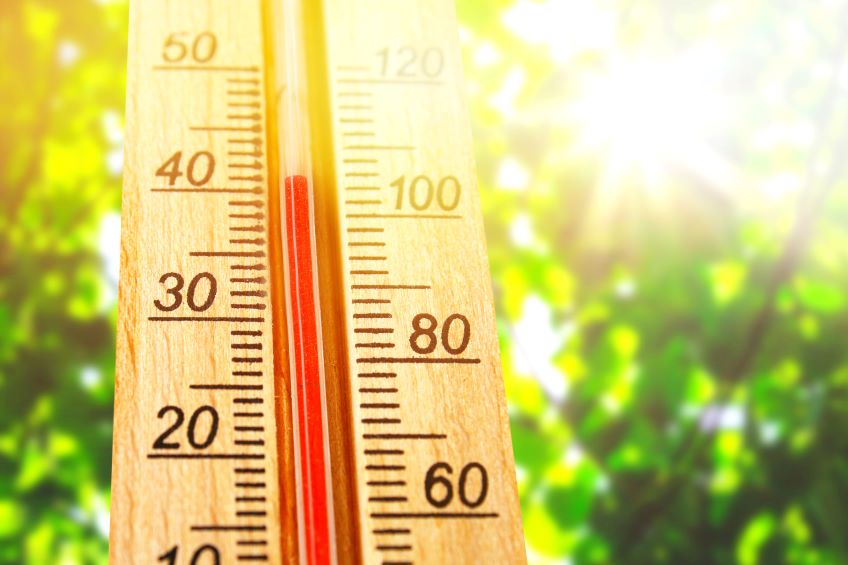
Areas of Concern: Deserts and dry regions; US Southwest
High temperatures and direct exposure to the sun are damaging over time. Most homeowners don’t notice the effects of these conditions all at once, they can stack up and ruin the look of a house. Your home may protect you from the sun, but it takes a beating in the process!
Sunlight in particular can damage both your garage itself and anything it touches inside. UV rays are harmful to plastics and paints just as they are harmful to human skin. The best way to protect your belongings is to keep them out of the direct line of light through windows or doors. Getting things off the ground and stored on walls or the ceiling will often do the trick, but you may want to rearrange things to be safe. The sun can also ruin a garage floor that isn’t properly protected. Epoxy coatings or paints will often yellow or fade through direct exposure. Instead, consider using a polyurea coating. Polyurea is highly UV and heat resistant, so it’ll handle the elements better.
If you’re concerned with high temperatures inside of your garage, there are a few options that will help you manage it. Some homeowners with smaller garages can get by with an inexpensive window-mounted unit. For a larger garage, however, a large system may be required, which can get spendy. One cooling alternative is to use insulated curtains on windows, which are designed to block heat from entering directly. Or use fans to increase airflow and release excess heat.
If you have a refrigerator in the garage, consider moving it to another part of your house. While having a garage fridge is common in many homes, they can be a massive drain on your electric bill. Refrigerators need to fight the hot external temperatures, which will cause your energy costs to rise and shortened the lifespan of the appliance.
Cold/Ice
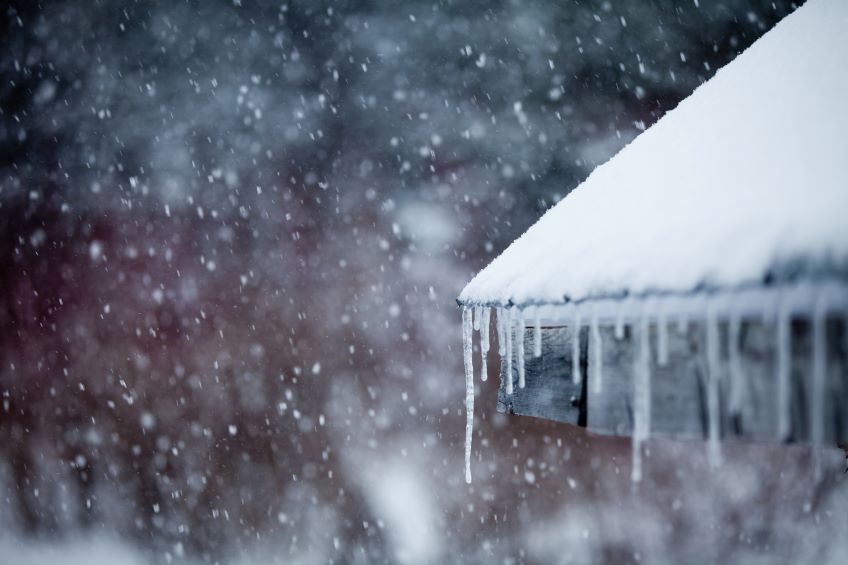
Areas of Concern: Anywhere with colder weather, particularly Northern States.
Cooler temperatures are generally not too bad for stored items in a garage, although it can cause problems with the functionality of the garage itself. One common problem is the garage door losing functionality as the temperature drops. The garage door opener can lock up, and cause strain on the motor, or freeze the system entirely. The best way to prevent this is to make sure the system is properly lubricated and greased before each winter.
A concrete floor is also likely to deteriorate in the winter. The cold itself can cause shrinking in the concrete, which cracks the surface. In addition, snow, ice, and salt cause pits and erosion. Like in the above section, a polyurea floor coating will keep the concrete surface sealed and resistant to water and extreme temperature.
Finally, consider getting any exposed pipes in the garage insulated to prevent freezing.
Water
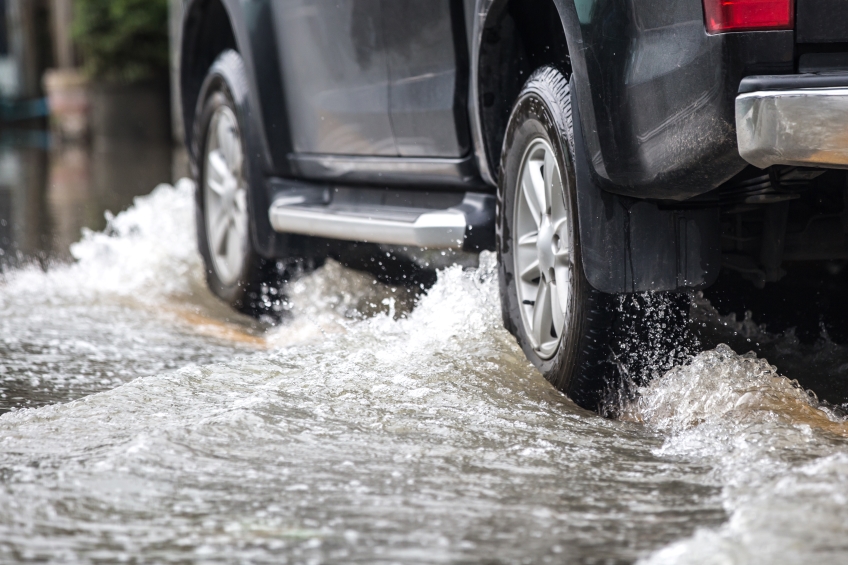
Areas of Concern: Areas of frequent rainfall or flood-risk; (Coastal regions, US Southeast)
Water damage can happen anywhere… even in drier climates where the occasional rains cause flooding. Areas that have frequent rainfall or storms are most at risk, however.
Garages are often the lowest point of a home, so they require some special attention to prevent flooding and water damage. According to Travelers.com, water damage (both weather and non-weather related) make up 31 percent of property damage claims. If you suspect flooding could be a concern, you’ll want to take some precautions to ensure you won’t have any lasting damage.
First and foremost, get everything off the floor. Using shelving and racks, you can store almost everything off the ground in the garage. Next, check your doors and windows to see if there are any possibilities for rainwater or flooding to get through. Use weather striping or caulk to fill cracks.
If there are concerns for serious flooding from storms, consider setting up sandbags or flood barriers. Installing proper drainage in your home and yard will help mitigate the damage as well.
Dust, Debris and Smoke

Areas of Concern: Windy and/or dry areas
Keeping your garage clean with wind and debris is mostly an issue of maintenance. As you open the garage door and windows, things will naturally be blown inside.
The easiest way to deal with this is simply to keep the garage door closed. You should also plan on regularly taking fifteen minutes to sweep everything out. If you’re using storage solutions and have your items off the floor, this will be very easy. If not, use a smaller broom to get in tight spaces before doing the main floor. Avoid using an electrical blower indoors. Doing so will get the dust into the air, and the lack of ventilation will make it difficult to remove.
One of the biggest causes of garage dust is actually the concrete itself. Concrete naturally produces dust over time. Getting it sealed with a coating will prevent this dusting, giving you a huge advantage in keeping the space clean.
Smoke from wildfires can cause big problems if left unattended. It can discolor exposed items, and too much of it can cause permanent damage. If you live in an area that is prone to fires, keep your windows and garage doors shut as often as possible. If you’re still having problems, there are several options for air filters that will keep the air clean.
Pests
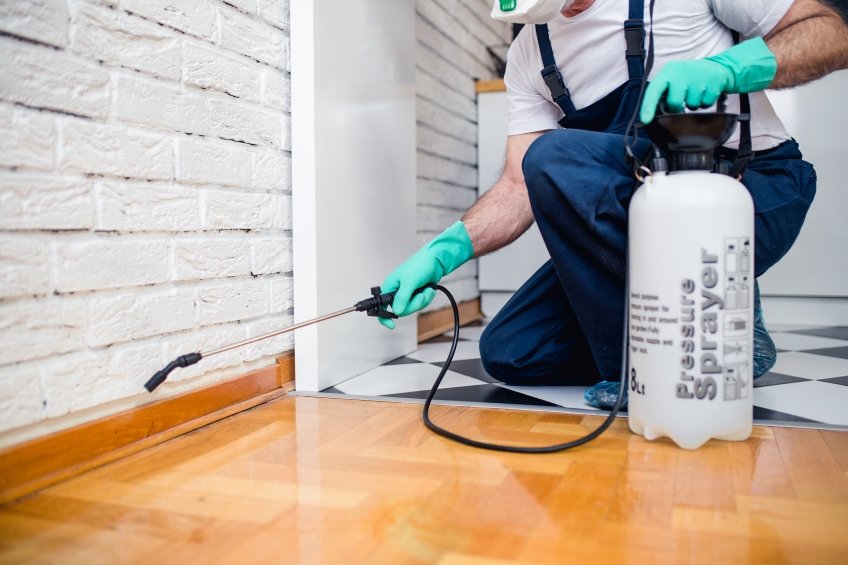
Areas of Concern: Anywhere, especially in extreme temperatures
Animals may survive well outside, but like humans, they’ll take the opportunity to live in your house if they can. Garages are great options from them, as they tend to be more temperate than outside. They also see less human traffic and are darker, so they can hide inside safely. Sometimes they can even find a snack!
While those critters are well and good outside, we don’t want them in close proximity to us or our families. They can cause damage to the home or our possessions, and are sometimes dangerous to humans or pets.
The number one prevention is to keep your garage clean and sealed! Make sure windows and doors are shut tight and fill any holes or cracks that have formed. Keep everything clean and orderly. Having clutter creates plenty of spaces for hiding. Having things off the ground makes it even more difficult for them. Make sure no food is present where they can get to it!
The elements are harsh and can be detrimental to any home. It is important to plan ahead and prepare while times are good. No matter where you choose to live, the garage can be one of the greatest assets of your home. Give the care and attention it deserves.
